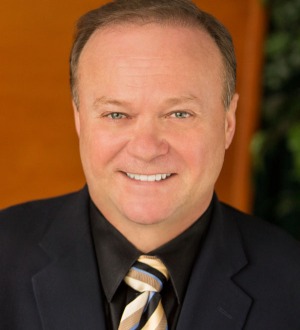If you are quarantined or under a lockdown and can't get to a notary, how can you get your will, trust and other documents executed? Don't give up. There are ways to get it done without leaving home.
by: John M. GoralkaMarch 30, 2020
The coronavirus lockdown began in the California counties of Sacramento, Palm Springs, Los Angeles and Ventura, issuing unprecedented orders for all residents to remain in their homes except for certain essential activities. Then Gov. Gavin Newsom expanded the shelter-in-place order to all residents in the state. Many other states, including Illinois, Florida and New York, have issued similar orders.
The specter of disease or even death is a sobering prospect motivating many to rethink their estate plans, including health care directives and powers of attorney. However, the orders for isolation create unique issues with your ability to effectively establish or fix your estate plan, including health care directives or instructions. We have never had to deal with these unique estate planning, legal and health care planning issues before. At the same time, we have an unprecedented emergency creating the need for many to act in a quick manner.
The foundational documents for an estate plan are overseeing the management and distribution of assets. These documents also designate representatives to make your financial and health care decisions. Each document has statutory or legal requirements that must be satisfied to be effective. Each of these documents, the specific requirements and these challenges are discussed below:
Revocable (Living) Trust
A trust will be used if there is a desire to avoid probate, minimize estate tax or possibly to facilitate qualification for benefits for long-term care. For most people, the trust will be the cornerstone of their estate plan. The trust provides for your care in the event of your incapacity and the distribution of your estate upon your death.
While there is generally no requirement to do so, lawyers will typically provide for the trust signature to be notarized. The primary reason is that the trust may need to be recorded (or may need to be a part of a title closing process) to transfer the ownership of the real property into the trust.
The problem is that, in most states, the notary rules provide that a document must be signed “in the presence of the notary.” In the age of quarantine and isolation, this may be either impossible or problematic. The lockdown prevents people from leaving their home to sign the documents. A mobile notary might still be available if they continue working during the quarantine. However, older clients or those with a compromised immune system may be put at risk while meeting with a mobile notary. These issues are compounded by both the unknown term or length of this situation and the need for so many people to quickly create or update their estate plan, including health care directives or powers of attorney.
For those not able or wishing to utilize a mobile notary, then the trust can be signed without a notary’s acknowledgment. Separate affidavits should be prepared and signed by both you and by the attorney preparing the documents. Those affidavits should indicate that the trust was signed without the notary’s acknowledgment due to the emergency conditions and the orders to remain at home. The acknowledgment should evidence concern that a visit from the mobile notary would expose the client to further risk of exposure to the COVID-19 virus. The client can have the signature of the trust notarized after the order, or when recommendations to remain at home are lifted or terminated. You should also attach an exhibit specifically identifying the assets to be transferred to the trust. This exhibit provides specific evidence of intent to transfer each asset, which may be needed later.
At the time of this article, a federal bill proposed in the Senate (S.3533, referred to as the SECURE Notarization Act) is pending, which would authorize remote online notarization. The text of the bill is not yet available.
On March 20, New York Gov. Andrew Cuomo signed Executive Order No. 202.7 to allow notarization utilizing audio visual technology. The New York order limits this process to persons physically located in New York.
Will
If a trust is used, as described above, then the will would typically be a “pour-over-will” intended to consolidate the administration of the estate in the trust. The will provides that all assets not funded will be transferred to the trust.
If there is not a trust, then the will itself will be the fundamental document. Each state has separate statutory or legal requirements as to the required provisions and signing process for a will to be valid. Some states (including California) provide that a will written entirely in your own hand with no preprinted provisions, if signed, is valid. This is referred to as a holographic will and requires no witnesses or notary acknowledgment.
Most states require a disinterested witness or witnesses. California requires two disinterested witnesses for wills that are not holograph wills written in your own hand. The term “disinterested” means not having an economic interest in the estate, including not being designated as an executor. This means that your spouse or child cannot be a witness, but a neighbor or random person off the street can.
A handful of states permit a will, otherwise requiring the signature of witnesses, to be valid with clear and convincing evidence of your intent for the will to be valid (in California, see Probate Code section 6110). An affidavit as described above indicating that the will was signed in this way as a result of the emergency conditions caused by the COVID-19 virus should satisfy this requirement.
Durable General Power of Attorney
This document designates the person(s) to make financial decisions regarding assets held or owned outside the trust if you are unable to do so. This document is particularly important to ensure continued access and control of all assets outside the trust (if you have a trust). You may wish to provide authority in the power of attorney to address issues regarding retirement benefits, life and medical insurance, and the ability to continue payments to persons financially dependent on you. The durable general power of attorney generally should be notarized, particularly if real property is owned. The suggestion to utilize a mobile notary or an affidavit to avoid the use of a notary for a trust are applicable here.
General Transfer
A general transfer is used to help further evidence your intent to transfer your assets to the trust. Under these emergency circumstances, you should attach a list specifically identifying all of the assets being transferred to the trust. This instrument should typically be notarized. The use of the affidavit or mobile notary described above is applicable here.
Deeds
Deeds should be prepared and signed for each real property to be transferred to the trust. A deed effectively transfers the property, as of the date that the deed is signed. Deeds are typically recorded to give notice to financial institutions and all other persons that the property is transferred. A signed deed that is not notarized cannot be recorded in California, or most other states. A title company or financial institution will typically require a court order reaffirming the transfer before accepting the deed without the appropriate notary acknowledgment. The use of an affidavit or mobile notary, as described above, will be applicable here.
Advance Health Care Directive or Durable Power of Attorney for Health Care
This document typically addresses whether you want your life prolonged by life support systems. Again, the legal formalities vary from state to state. California provides that the advance health care directive may be either signed in the presence of a notary or signed in the presence of two witnesses. If you are already in a care facility, some states, including California, require the signature of a patient ombudsman working for the care facility.
HIPAA Authorization
HIPAA is an acronym for the federal Health Insurance Portability and Accountability Act. Many states have their own medical privacy laws with separate requirements. California’s medical privacy act is referred to as the California Confidentiality of Medical Information Act (CMIA). Most powers of attorney and trusts provide that the designated persons can act if you are unable to do so. Financial institutions typically require confirming letters from your doctor that you are unable to act on your own behalf. To ensure the ability to act, if needed, successor trustees, executors and attorneys-in-fact should be given written access to obtain your medical information.
This article addresses some of the issues raised by completing or fixing your estate plan while ordered to stay at home. The issue is fluid and may change quickly, so be sure to stay in contact with your attorney.































